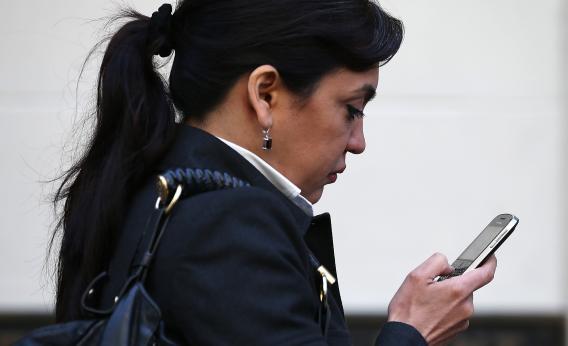The effort to stop law enforcement agencies in the United States tracking people’s cellphones without a warrant has reached a major new milestone.
On Tuesday, Maine became the second state in recent weeks to enact a law that will force authorities to get a judge to authorize a warrant before obtaining either historic or real-time location data about a person’s movements. Maine’s legislature voted to pass the tracking law after it sailed through both houses in the state in May. According to the ACLU of Maine, the legislature took the decisive step of overriding veto by Gov. Paul LePage, who had declined to sign off on the bill.*
Notably, LD 415 doesn’t just include provisions that will require authorities in the state to obtain a search warrant before tracking cellphones or other GPS-enabled devices. The law also includes a requirement that law enforcement agencies notify a person that she was tracked within three days, unless they can prove that secrecy is necessary in order to delay the notification for an unspecified period. An earlier draft of LD 415 would have boosted surveillance transparency, too, mandating the annual publication of a report online detailing the number of times location data were sought by law enforcement agencies. However, the transparency clause was removed from the final version of the law after a series of amendments were added.*
Maine now joins a small group of states pioneering new privacy-protecting laws for the digital age. Last month, Montana became the first state in the country to enact a law requiring law enforcement agencies to obtain a warrant before tracking an individual by obtaining location data. Earlier this year, Texas embarked on a push to pass similar legislation, but its location tracking law did not make progress through the state House and never made it to the floor for a vote.
The Justice Department’s position on cellphone tracking is that warrants should be necessary for any precise tracking done in real-time, according to the ACLU, but it claims that warrants should not apply to historic location information because Americans have “no expectation of privacy” over the data. Maine and Montana have both roundly rejected this policy with their tracking laws, which ensure that a warrant is required equally to obtain historic and real-time data, except in exceptional circumstances, such as in a life-threatening emergency.
In the months ahead, it seems likely that other states will attempt to follow the model set by Maine and Montana. In addition, a significant court case is taking place in the 4th Circuit Court of Appeals in Maryland that could have ramifications for how law enforcement agencies can conduct warrantless tracking. In United States v. Graham, the government obtained a vast seven-month trove of location data without a warrant, which revealed 29,659 specific places a suspect had visited. Rights groups including the Electronic Frontier Foundation and the ACLU have filed an amicus brief in the case, arguing that warrantlessly obtaining seven months of data showing a person’s movements amounts to a violation of the Fourth Amendment’s protections against unreasonable searches and seizures. Last year, the Supreme Court ruled that tracking a person’s vehicle on a “long-term” basis using a GPS device was covered by the Fourth Amendment, meaning it should in most cases require a warrant. If the 4th Circuit agrees that the same principle applies to cellphone tracking in the Graham case, it could force the DoJ and cops across the country to rethink their warrantless tracking policy.
*Correction, July 10, 2013: This post incorrectly reported that LD 415 was not signed off by Gov. Paul LePage due to “inaction.” In fact, LePage vetoed the bill in a move that was later overridden by the Maine legislature. The post has also been edited to reflect that the final version of the bill removed a requirement to produce a transparency report and deleted a clause specifying that a delay in notification could not be extended beyond 180 days.
